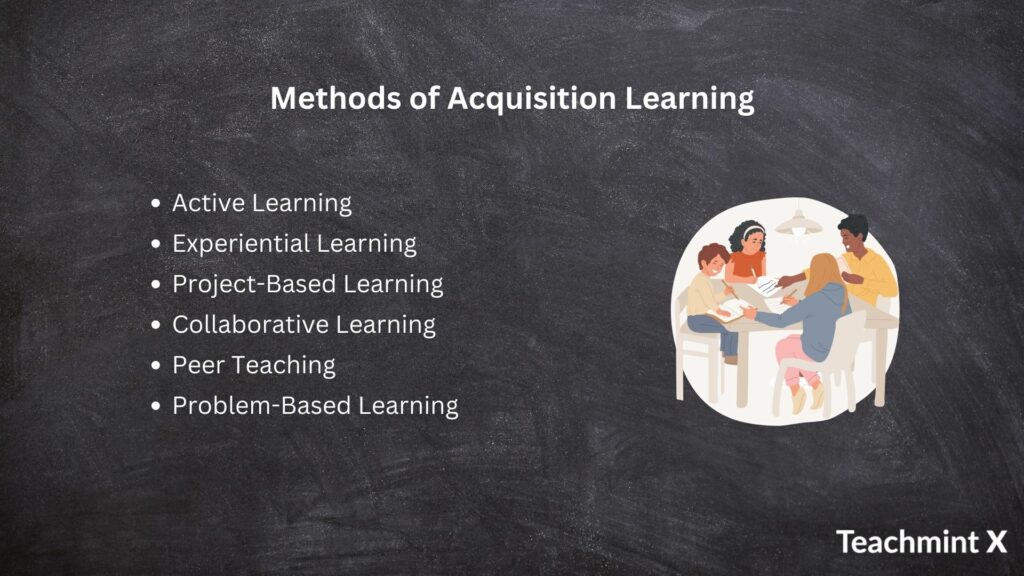Acquisition refers to the process of grasping information by the subconscious mind without the conscious mind being aware. Learning refers to the conscious process of obtaining knowledge. When used together, acquisition learning works in the case of native languages, which usually a child learns while growing up. A child’s brain pairs audio with actions, to store words and their implied meanings in the subconscious mind. In this article, we’ll focus on learning more about what is Acquisition and related concepts.
Stephen Krashen gave the theory of Language Acquisition, in which he argued that the first language acquired in the home environment is always native, and the second language is always learned through cognitive ability. The second language is a product of formal teaching on grammar and the style of the language.
The information about the native language stored in the brain through communication in the child’s early growing years is known as acquisition learning. There is no formal training, and the focus is more on the text rather than the style and grammar. There are different learning styles for students. Though acquisition learning is not a type of learning, it can be considered as a branch of the same.
What is the difference between acquisition and learning?
The difference between acquisition and learning can be understood by reading about both the concepts individually. When we discuss language learning the key contrast lies in how learning and acquisition differ in their approaches. Learning is an intentional process whereas acquisition occurs subconsciously.
What is knowledge acquisition?
Knowledge acquisition involves seeking and absorbing information through reading, research, training and learning experiences. It allows individuals to enhance their expertise and broaden their understanding, in areas or fields.

Let’s discuss some benefits of knowledge acquisition in detail below:
- Problem solving: Knowledge acquisition helps learners develop a deeper understanding of the concepts and ensures the development of problem solving skills.
- Critical thinking: Learning different concepts and acquiring knowledge helps in the development of mind. It provides alternative perspectives and solutions to problems, fostering creative and innovative thinking.
- Communication skills: A broad knowledge of things helps in developing confidence and enables you to communicate with a large number of people. This also promotes better collaboration.
- Professional opportunities: Gaining knowledge can help increase unexpected opportunities and career development.
- Enhanced problem framing: Acquiring knowledge from different fields and having a deeper understanding of concepts can help you in analyzing every problem differently. It helps in leading you to more comprehensive and effective solutions.
- Understanding mindset: Having a good amount of knowledge about different cultures, histories, and perspectives fosters empathy and a better understanding of the complexities of the world.
The first language that most of the people speak is through acquisition learning without any formal training. Human babies start speaking as early as one year of age before they go to any school for formal education.
Kindly explore the Website for more information.

